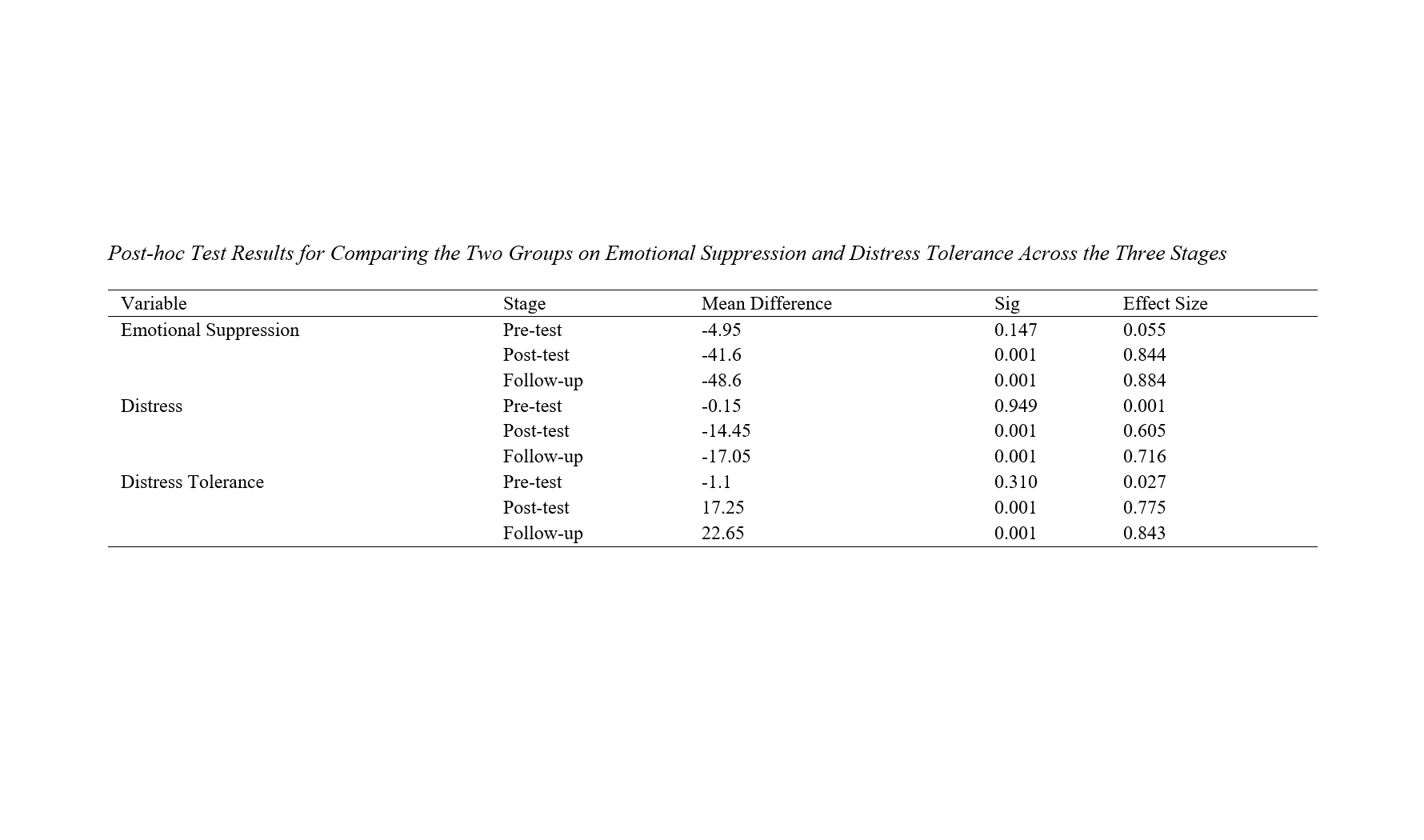The Effectiveness of Emotion-Focused Therapy on Emotional Suppression and Distress Tolerance in Divorced Women
Keywords:
Distress Tolerance, Emotional Suppression, Emotion-Focused Therapy, Divorced WomenAbstract
Objective: The aim of the present study was to determine the effectiveness of emotion-focused therapy on emotional suppression and distress tolerance in divorced women.
Methods and Materials: The current study was a quasi-experimental design with pre-test, post-test, and follow-up phases, including a control group. The statistical population consisted of all divorced women residing in Shiraz in 2021, who had been legally divorced for at least 6 months and up to 2 years. A total of 40 individuals were selected from this population based on inclusion criteria using purposive sampling from those who visited the Aban Clinic in Shiraz in 2021. These individuals were randomly assigned to two experimental groups and one control group (20 participants in each group). The experimental group underwent ten 90-minute sessions of emotion-focused therapy, while the control group did not receive any therapeutic intervention. Data were collected using the Weinberger Emotional Suppression Questionnaire (2010) and the Simons and Gaher Distress Tolerance Scale (2005) and analyzed using repeated measures ANOVA via SPSS software version 23.
Findings: The results indicated the impact of emotion-focused therapy on emotional suppression (F=204.1, P=0.001) and distress tolerance (F=48.120, P=0.001), with the persistence of these effects in the follow-up phase.
Conclusion: Based on the findings of this study, emotion-focused therapy can be considered a complementary treatment alongside other therapeutic methods to reduce emotional suppression and increase distress tolerance in divorced women.
Downloads

Downloads
Additional Files
Published
Submitted
Revised
Accepted
Issue
Section
License
Copyright (c) 2024 Firouze Heydari Faela (Author); Seyed Hamid Atashpour (Corresponding Author); Floor Khayatan (Author)

This work is licensed under a Creative Commons Attribution-NonCommercial 4.0 International License.









